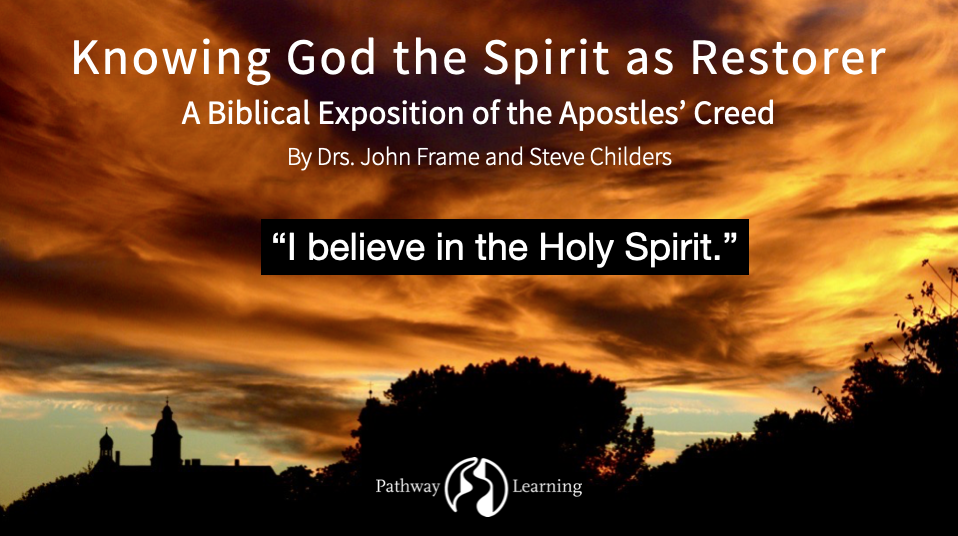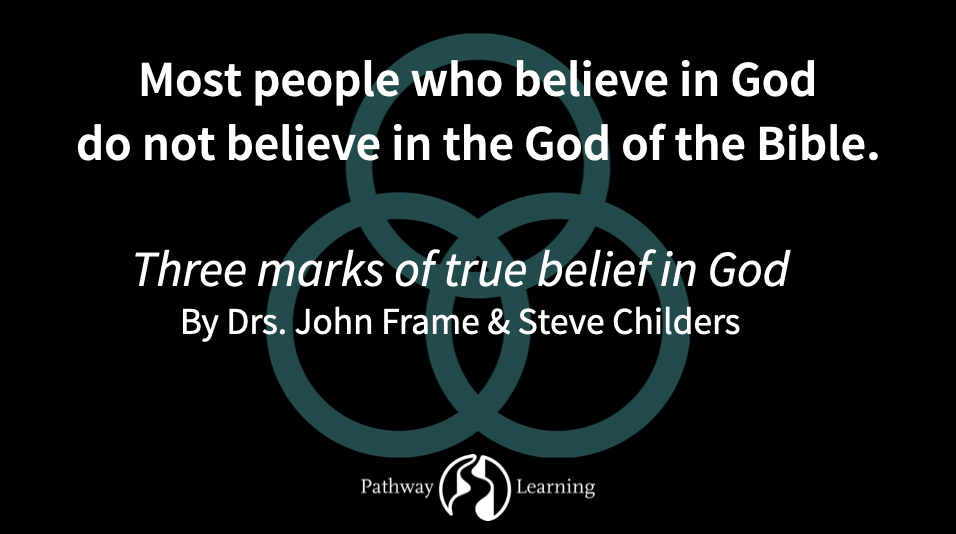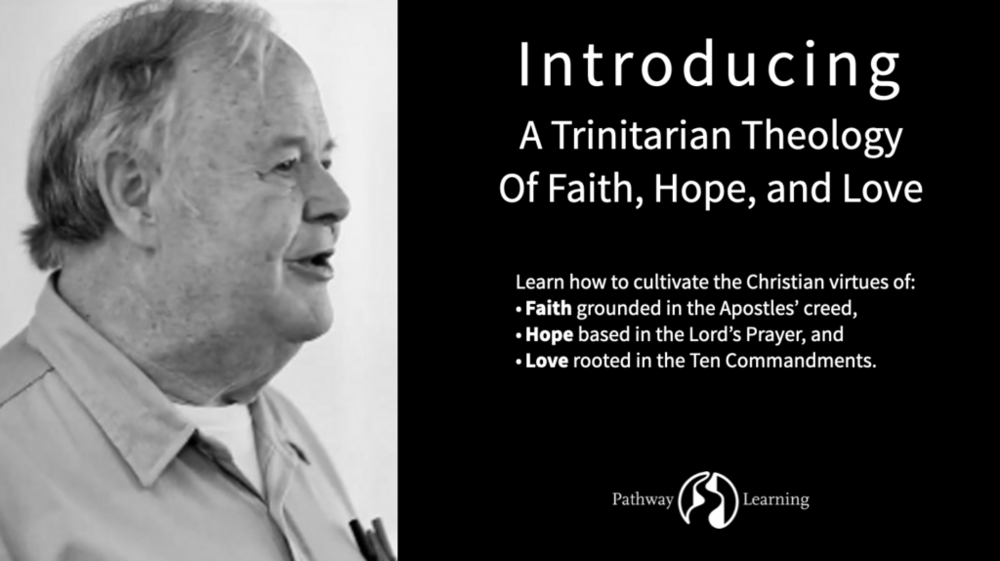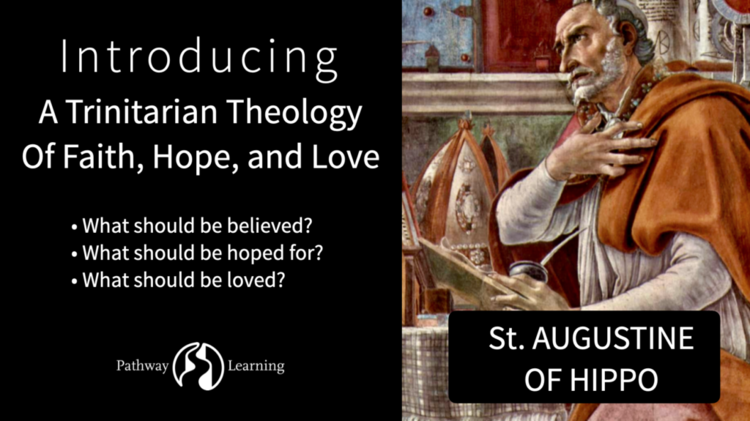
Pathway Learning Blog
Access our growing library of hundreds of blog posts covering topics relevant to church leaders. Preview and read these blog posts now.
SEARCH THE BLOG
Looking for something in particular? Search our hundreds of blog posts on topics of interest to church leaders.

Understanding Hope and the Lord's Prayer (Theology of Hope, Part 1)
In this Applied Theology series of courses and books, you’ll learn a Trinitarian theology of faith, hope, and love by understanding and applying to your life what the Bible teaches about: 1) Faith found in the Apostles’ Creed, 2) Hope found in the Lord’s Prayer, and 3) Love found in the Ten Commandments.

Introducing a Theology of Hope: Biblical Exposition of the Lord's Prayer by Dr. John Frame
Introducing “Theology of Hope: A Biblical Exposition of the Lord’s Prayer”. Learn how to develop a strong hope rooted in the rich, biblical truths found in the Lord’s Prayer that will help you apply God’s Word to all areas of your life.

The Lordship Catechism: An Introduction (The Lordship Catechism, Part 1)
In the Spring of 2021, a new catechism was launched – The Lordship Catechism. Like many catechisms before it, it contains echoes of previous catechisms. The authors and compilers, Drs. John Frame and Steve Childers, draw from many ancient, and traditional formulations of Christian doctrine. This catechism is uniquely Trinitarian in nature and structure, connecting us back to the ancient, historic method that uses the Trinity as an organizing structure for studying Christian theology.

"Who is God?" (The Lordship Catechism, Part 2)
This catechism is uniquely Trinitarian in nature and structure, connecting us back to the ancient, historic method that uses the Trinity as an organizing structure for studying Christian theology. In this exposition and commentary on the question "Who is God?", you’ll learn from Scripture about the supremacy of the Triune God as LORD in all things

"What is God?" (The Lordship Catechism, Part 3)
This catechism is uniquely Trinitarian in nature and structure, connecting us back to the ancient, historic method that uses the Trinity as an organizing structure for studying Christian theology. In this exposition and commentary on the question "What is God?", you’ll learn from Scripture the meaning and practical applications of Jesus' statement "God is spirit."

Introducing the Learner Guide for Adults and Children (The Lordship Catechism, Part 4)
In this excerpt from the Lordship Catechism Learner Guide question "Who is God?", you’ll learn how both adults and children can develop a mind for truth, a heart for God, and a life for ministry rooted in God's Lordship as Creator, Redeemer, and Restorer.

Learner Guide for Adults and Children: "What is God?" (The Lordship Catechism, Part 5)
In this excerpt from the Lordship Catechism Leaner Guide question “what is God?”, you’ll learn from scripture the meaning and practical application of Jesus’s statement, “God is spirit.”

Why Look Forward to Your Resurrection and the Life to Come, Part 2 (Faith in Theology, Part 9)
The highest blessing in the world to come is the restoration of our “face to face” relationship with God through which will flow the restoration of all our other relationships that God ordains for human flourishing – including our relationships with ourselves, others, and our work.

Biblical Exposition of the Creed by John Frame (Faith in Theology, Introduction)
We are summarizing the theology of the Bible in three categories, faith, hope, and love. These have been called “theological virtues,” and in 1 Cor. 13:13, the Apostle Paul describes them as the things that “remain,” when our childhood ignorance passes into complete, godly knowledge.

Understanding the Faith and Creeds (Faith in Theology, Part 1)
In the Applied Theology series of courses, you’ll learn a Trinitarian theology of faith, hope, and love by understanding and applying to your life what the Bible teaches about: 1) Faith found in the Apostles’ Creed, 2) Hope found in the Lord’s Prayer, and 3) Love found in the Ten Commandments. You’ll learn from God’s Word that: A mind that is renewed by faith and a heart that is aflame with hope results in a life that honors God by loving him and others deeply and well.

Why Look Forward to Your Resurrection and the Life to Come, Part 1 (Faith in Theology, Part 8)
The historic Nicene Creed ends with the statement, “We look forward to the resurrection of the dead, and the life in the world to come.” It’s easy to affirm these words with our mouths, but it’s often hard to experience the reality of these words in our hearts. Most Christians today don’t seem to be looking forward to their resurrection and the life to come described in Scripture.

Our Trinitarian Faith: The Apostles’ Creed (Applications in Theology, Part 2)
Everything in theology is ultimately about the revelation of the person and work of the Triune God in Scripture as Creator, Redeemer, and Restorer. So, instead of studying the doctrine of the Trinity as only one of several topics in theology, all other Christian doctrines should be studied in light of the Trinity.

Knowing the Son as Redeemer (Faith in Theology, Part 3)
To know God means to know who God is and what God does as Triune Lord – Father, Son, and Holy Spirit. In the last chapter our focus was on knowing God the Father as Lord in his work of creation. In this chapter our focus is on knowing God the Son as Lord in his work of redemption. The second and largest section of the Creed presents the person and work of Jesus Christ.

Knowing Christ in His Exaltation (Faith in Theology, Part 4)
Having examined the Son’s work of humiliation as our Redeemer in his birth, life, and death, we turn now to consider his work of exaltation in his resurrection, ascension, and return. When describing Jesus’ resurrection, the Creed says, The third day he rose again from the dead. Luke writes: On the first day of the week, at early dawn, they went to the tomb, taking the spices they had prepared…

Knowing God the Spirit as Restorer, Part 1 (Faith in Theology, Part 5)
To know God means to know who God is and what God does as Triune Lord – Father, Son, and Holy Spirit. Here we learn the biblical teaching on the person and work of the Holy Spirit as Restorer.

Knowing God the Spirit as Restorer, Part 2 (Faith in Theology, Part 6)
Christians believe that there is a new world coming when Jesus returns, in the power of his Holy Spirit, to restore fallen humanity and creation by establishing God’s kingdom on earth forever. The Apostles’ Creed affirms three biblical beliefs regarding the age to come when Christ returns: 1) the resurrection of the dead, 2) the judgment of the living and the dead, and 3) the life everlasting in the world to come.

Three Marks of True Belief in God (Faith in Theology, Part 7)
I believe in God are the first words of the Apostles’ Creed. Do you believe in God? It seems like a simple question that requests a simple yes or no answer. Yet generation after generation, the ancient question of humanity’s transcendent belief surfaces, and the answers depend on what people mean by saying they believe in God.

Knowing the Father as Creator (Faith in Theology, Part 2)
To know God means to know who God is and what God does as Triune Lord – Father, Son, and Holy Spirit. This requires us to know God’s attributes and acts. In this chapter our focus is on knowing God the Father as Lord of Creation. The Apostles’ Creed is divided into three major sections representing the person and work of the three members of the Trinity.

Introducing a Theology of Faith, Hope, and Love (Applications in Theology Series)
Theology is, as we’ve said, the application of Scripture by persons to all areas of life. On this definition, theology is Scriptural, practical, and personal. But on this understanding, theology is universal in scope, and therefore a huge task. Are there any directions as to how we may divide up the task into smaller units?

Faith, Hope, and Love in Theology (Applications in Theology, Part 1)
The Applied Theology series follows the ancient Greek and Christian tradition of Augustine’s Enchiridion. The word enchiridion is derived from the Greek word (ἐγχειρίδιον) that conveys the concept of a book that is “fitting in (en) the hand (kheir)” or “ready to hand” as in ready to hand someone.
